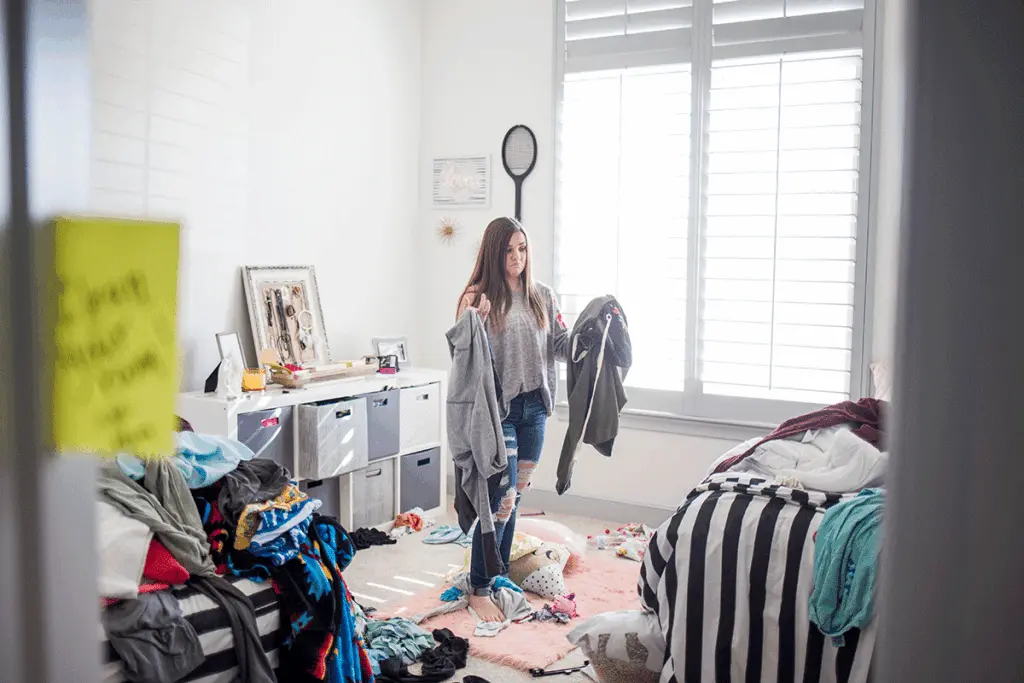The state of one’s living space, particularly a messy room, can sometimes serve as a visible reflection of their mental and emotional well-being. At the Massachusetts Center for Adolescent Wellness (MCAW), we recognize the potential connection between a messy room and depression, especially in teenagers. Wondering if your teen’s messy room means depression?
Contact MCAW today to learn how our depression treatment for teens helps young people overcome depression symptoms so they can be happy and thrive.
Is a Messy Room a Depression Sign?
Is a messy room a sign of depression? Well, the answer is not a simple yes or no. While having a messy room can be a potential indication that someone is struggling with depression, it is not always the case. There are many factors to consider when determining the relationship between a person’s living space and their mental health.
One possible reason for a messy room could be due to lack of motivation or energy, which are common symptoms of depression. When someone is feeling depressed, they may have difficulty finding the motivation to clean and organize their living space. This can lead to clutter piling up and creating an overall disorganized environment.
On the other hand, some individuals simply have different levels of tolerance for messiness and clutter. Just because someone’s room is messy does not necessarily mean they are experiencing depression. Some people may thrive in a messy or chaotic environment and find it more conducive to their creativity and productivity.
It’s important to note that a messy room alone should not be used as the sole indicator of someone’s mental health. Other symptoms and behaviors should also be considered, such as changes in mood, loss of interest in activities, difficulty sleeping or eating, and social withdrawal.
Understanding the Link Between Depression and Messy Rooms
A messy room can often be indicative of underlying mental health issues, including depression. For some individuals, feelings of overwhelm, lack of motivation, and a sense of emptiness associated with depression can manifest in the form of clutter and disorganization in their living space. The inability to maintain a tidy environment may stem from feelings of hopelessness, fatigue, or a lack of energy that are common symptoms of depression. In these cases, addressing the underlying depression is crucial in helping someone regain a sense of control and motivation to tackle their living space.
Signs of Depression
Wondering if a teen in your life is living with depression? Here are a few symptoms:
- Persistent sadness – Feelings of sadness, emptiness, or hopelessness that persist for an extended period may indicate depression.
- Loss of interest – Lack of interest or pleasure in activities that were once enjoyable can be a sign of depression.
- Changes in sleep and appetite – Disrupted sleep patterns, insomnia, oversleeping, changes in appetite, or weight fluctuations are common symptoms of depression.
- Fatigue and low energy – Persistent fatigue, low energy levels, and difficulty concentrating are often associated with depression.
- Irritability and mood swings – Increased irritability, mood swings, or agitation without a clear cause may point to underlying depression.
Depression in teenagers can present differently than in adults and may be masked by behaviors such as irritability, social withdrawal, academic decline, or reckless behavior. Teens experiencing depression may struggle to communicate their emotions effectively, leading to challenges in seeking help or expressing their needs. A messy room could serve as a visual cue for caregivers to explore potential underlying mental health concerns with their teenager.
Call MCAW to Learn About Depression Treatment
By addressing the root causes of depression, providing therapeutic support, and fostering a nurturing environment for healing, MCAW aims to empower teenagers to heal from depression and reclaim their mental well-being. Contact us online or call today to learn more about our depression treatment programs and how we can support your teen through their journey towards emotional wellness.




